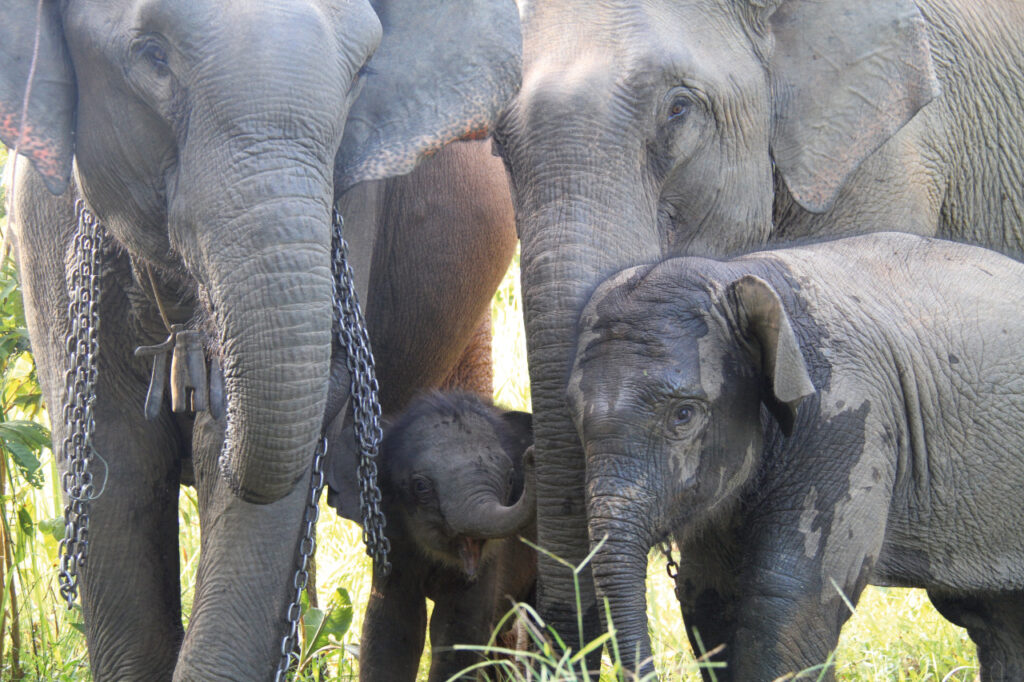[LUM#8] Elephants on maternity leave
Introducing maternity leave for... domestic elephants in Laos is the very serious suggestion made by biologist Gilles Maurer of the Center for Functional and Evolutionary Ecology (CEFE). This measure aims to compensate owners for lost income during their animals' gestation period and, according to the researcher, could well contribute to the preservation of this species, which is currently endangered.

"If nothing changes, Asian elephants will simply disappear from the region within the next fifty years," warns Gilles Maurer. In Laos, the opening up of the market economy in the late 1990s was accompanied by a sudden intensification of the work carried out by domestic pachyderms, mainly for the transport of rosewood now destined for export. "Transporting trees from the cutting site to temporary storage areas is a very physical operation that is particularly incompatible with the gestation of females," explains the researcher.
Birth rate in free fall
In this context, elephant reproduction was quickly associated with the loss of income it causes for their owners. "Pregnancy tires the female, making her less efficient at physical work. And when the calf is born, it hinders its mother's movements, making her difficult to approach and very protective," explains the founder ofElefantAsia.
Across the country, owners of domestic elephants quickly gave up breeding their animals, preferring the income generated by logging and, more recently, tourism. In addition, the decline in forest habitat has forced owners to keep their elephants tethered, preventing them from breeding with wild males. As a result, the birth rate of these pachyderms has plummeted since the 1990s, to the point that Laos, nicknamed "the land of a million elephants," now has only 800 specimens (Conservation of the Asian elephant through the study of interactions between humans and wild and semi-captive elephant populations: genetic, economic, and sociocultural, G. Maurer, June 2018).
Compensatory logic
"Compensating elephant owners for lost income during their animals' long gestation periods (22 months) and nursing periods (2 years) would separate the pachyderms' demographics from economic considerations and could boost the birth rate,"says Gilles Maurer, who is now advocating for the introduction of Western-style maternity leave in Laos for elephants and their owners.
Until recently unknown in the country, the concept of "maternity leave" already seems to be appealing to owners of domestic elephants. However, in a country where tax payments remain uncertain, they are questioning the practical details of its implementation and, above all, its financing in practice. This comes at a time when a new threat looms over Elephas Maximusin Laos: its rampant export to neighboring China. While Laos has no more than 10 elephant births per year, 5% of the population is now sold to China each year to be exploited for tourism purposes.
Find UM podcasts now available on your favorite platform (Spotify, Deezer, Apple Podcasts, Amazon Music, etc.).